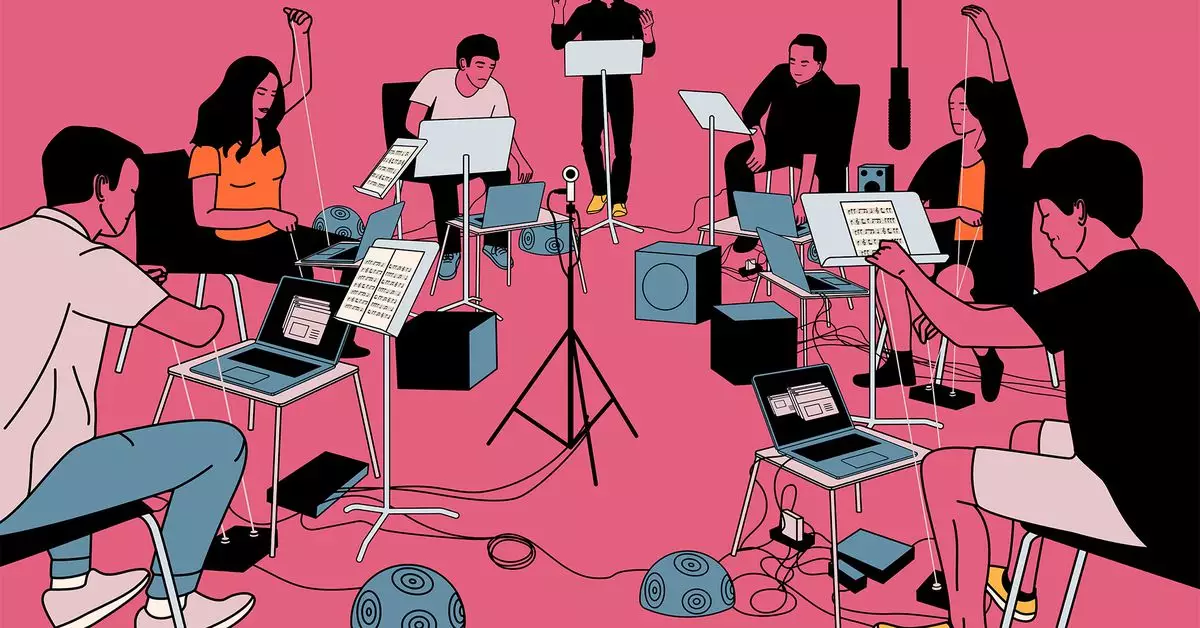Ge Wang is not your average music producer; he embodies a revolutionary approach to blending technology with musical art. As an associate professor at Stanford University’s Center for Computer Research in Music and Acoustics, he does not merely utilize computers in the traditional sense to create music. Rather, he engages with them to produce what he defines as “computer music.” This approach sets him apart as a thinker and innovator in the field, exemplifying a profound understanding of the interplay between human expression, technology, and sound.
Wang’s impressive background includes founding Smule, a prominent music app company, and developing Chuck, a unique programming language that allows users to generate audio through code. His contributions have paved the way for a new generation of musicians who see technology not just as a tool for enhancement but as a canvas for creativity. By fostering an interactive relationship with technology, Wang encourages students and creators to explore music beyond conventional limitations, sparking ideas that push the boundaries of what music can be.
The Future of Music in the Age of AI
In a recent episode of The Vergecast, an enlightening discussion unfolded about the evolution of music in a rapidly advancing technological landscape. The conversation navigated various avenues concerning artificial intelligence’s influence on creativity. Wang passionately advocates for a paradigm shift in how we perceive the relationship between creators and their tools. Instead of purely mastering technology for efficiency’s sake, he exhorts us to embrace the complexity and challenges that come with making music.
The central question that arose from this discourse was whether ease of creation actually benefits the artistic process. With an abundance of technological tools available to facilitate tasks, the essence of creativity may be diluted if we look for shortcuts. Wang challenges us to reflect on the value of the creative struggle – the arduous journey that often leads to genuine innovation and personal growth. Are we sacrificing the depth of experience for the sake of simplicity?
Creativity and Humanity in the Digital Age
As tools proliferate and AI becomes more ingrained in creative processes, the discussion naturally drifts to the role of humanity in these endeavors. What does it mean to be creative when algorithms can generate music that sounds remarkably human? During their chat, Wang proposed that the value of human creativity lies not just in the finished product but in the unique experiences, emotions, and perspectives we bring to the table.
Ultimately, conversations like these serve as vital reminders in an era where technology defines the rhythm of everyday life. We must not overlook the intricate dance between technology and creativity. Instead, we should ask ourselves how we can reclaim the essence of human creativity in a world increasingly dominated by algorithms and automated processes. In essence, the future of music may depend on our ability to value the creative processes that challenge us, rather than escape them.
Ge Wang’s innovative vision invites us to examine our relationship with technology and the way it shapes—and perhaps even threatens—our musical and creative identities. It is only through embracing both the complexities and the challenges that we might rediscover what it truly means to create.


Leave a Reply